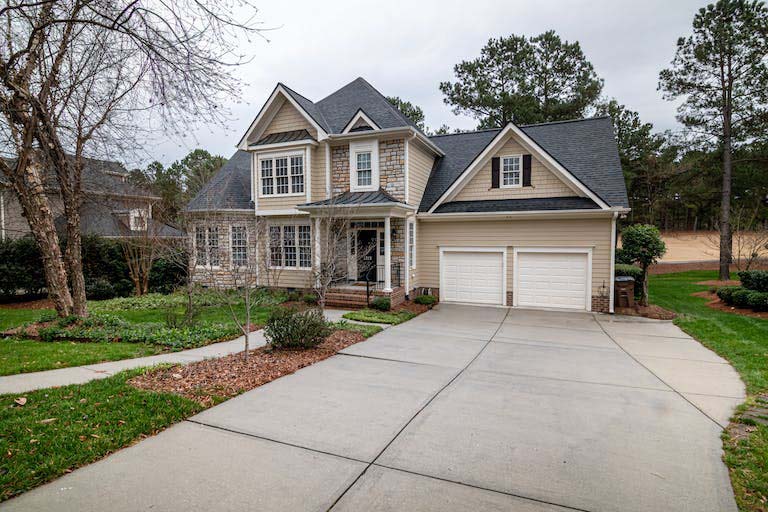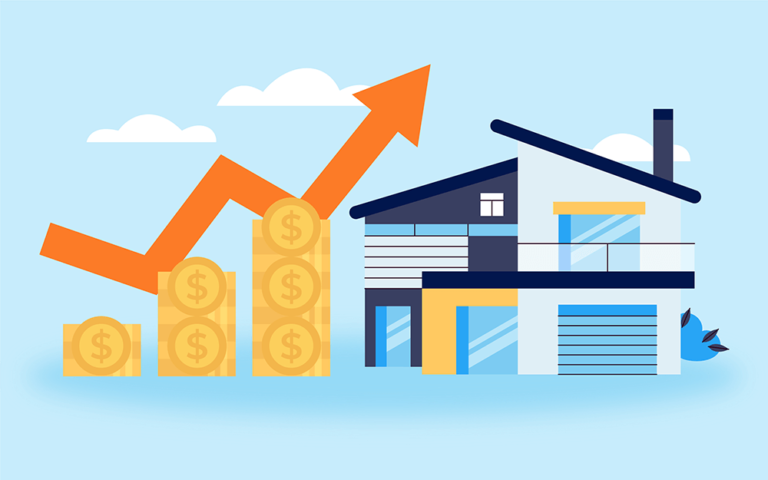Homeowners Insurance Requirement By Lenders For Mortgages
This article covers homeowners insurance requirement by lenders on mortgage loans. Homeowners insurance (Often referred to as HOI) protects the homeowners and lenders. HOI protects owners and lender from damages to homes such as fire damage and other disasters. Every home buyer who is purchasing a home or a homeowner who is refinancing their home has mandatory homeowners insurance requirement by lenders. HOI protects against the replacement value of the house in the event of damages. Homeowners Insurance Requirement By Lenders For Mortgages is required in order for a lender to approve and CTC the home loan. Lenders require mandatory requirement of the homeowners insurance policy. It protects its interest on the property of the lender since they have a first lien position
What Is Minimum Homeowners Insurance Requirement By Lenders For Mortgages
Lenders will require the homeowners insurance to be enough to cover loan balance and the cost of replacing the home. Homeowners can get additional coverage for content and other coverage. But that is not mandatory. Lenders just want to protect their interest and do not require content insurance.
Other HOI Requirement By Lenders For Home Loans
If the home is located in a flood zone, flood insurance will be required by lenders. Flood insurance can be quite costly. Often times, flood insurance can be more than the homeowners insurance. Flood insurance, earthquake insurance, and hurricane insurance are additional insurance coverage that may be required in addition to the hazard insurance. All mortgage loans that have higher than 80% loan to value will need mandatory escrow.
- Insurance and taxes are escrowed
- Escrow payments, also called pre-paid, will be part of monthly housing payment
- The monthly mortgage payment will consist of the following:
- principal
- interest
- property taxes
- homeowners insurance
- Homeowners who are required flood insurance and homeowners association fees, those payments will be part of escrows as well if the loan is higher than 80% LTV
- For home buyers or homeowners who are refinancing their mortgage loans have a loan to values less than 80% to Waive escrows
- By waiving escrows, homeowners can pay their homeowners insurance and property taxes by themselves
- In the event, if the lender finds out that the property is not insured, the lender will purchase place forced-placed homeowners insurance and bill borrower
- This is called forced homeowners insurance
- Homeowners will want to avoid this if at all possible
- Forced homeowners insurance placed by lenders is double or triple if not more than the private insurance carriers
- A homeowner can choose any homeowner insurance policy they like
- They can change carriers as long as they notify their lenders
- Insurance companies have different premiums for the same house
- It is wise to shop for the lowest premium insurance company
- Homeowners who have other insured items such as automobile, boats, recreational vehicles, medical, dental, business insured with a particular insurance company can ask that company for a bulk discount
- Many insurance companies offer bulk discounts for policyholders multiple items insured with them
Let Us Help You Turn Your Plans Into Reality
Apply Online And Get recommendations From Loan Experts
Coverage and Terms of Homeowners Insurance
HOI covers any damage and liabilities that happens to the subject property. Fire, vandalism, and damage by acts of God such as tornadoes, major storms are normally covered. Besides damages to the home, homeowners insurance policies will cover liabilities that occur in a home. For example, if someone got injured at the property and get sued, the insurance company will cover legal defense and damages. Those without homeowners insurance can be opened to liability. Here is a case scenario where a homeowner has no HOI
- someone got hurt at their property
- gets sued
- have a judgment against them
- do not have the money to pay
- the lien can be placed on the property
- All insurance companies will have deductibles
- A deductible is an amount that the homeowner needs to pay out of pocket
- Anything above the deductible amount is covered by the homeowners insurance policy
- A mortgage loan with a higher deductible will have a lower premium
- The higher the deductible, the lower the insurance premium
- There are some lenders that might impose a restriction on a high deductible
Some lenders may require that deductible cannot be higher a 1% to 2% value of the home.
Common Queries Regarding Insurance Requirements Attached to Mortgages
What is the rationale behind the necessity for homeowner insurance? If a home is damaged or destroyed, insurance provides funds to repair or rebuild the house, enabling lenders to protect their secured financial collateral in the mortgage.
What is the most common type of homeowner’s insurance coverage?
Standard Obligation A Home Insurance policy, with the following specifics, is a basic requirement of most lenders:
- Dwelling Coverage – which takes care of any damage to the building structure.
- Hazard Coverage: Insurance that covers losses from fire, windstorms, and other specific perils mentioned in the policy.
- Liability Coverage—This covers infringements like I, such as destruction of other people’s property while on your premises.
- Flood coverage becomes necessary if the home is in a designated flood zone by FEMA.
What is the minimum amount of coverage one can insure for homeowners insurance?
The coverage should be sufficient to restore or reconstruct the structure after a complete loss. When the coverage exceeds the market value, this is referred to as the replacement cost.
Are all mortgages subjected to homeowner’s insurance?
All mortgages listed here, including conventional, FHA, VA, and USDA loans, require a homeowner’s insurance policy.
What will happen if I don’t buy any homeowner’s insurance?
Insurance verification will delay your closing since it is integral to a mortgage. There is no way to get around this. In this scenario, you will encounter the dreaded “delayed closing.” That happens when you try to close on a mortgage and can’t due to a lack of proof of insurance. If a policy is inactive, the lender may purchase a policy on your behalf through forced-attached insurance. These policies provide lower coverage and are more costly than homeowners insurance.
Need to buy a policy?
Customers will have to pay a high price.
Can a lender specify which insurance company I have to use?
Lenders are not allowed to specify which insurance company you must use. Policy requirements set by the lender must, however, be fulfilled. Are you trying to buy insurance from a different company? You are free to shop for the best rates and most comprehensive coverage.
Is an escrow account needed for homeowners insurance payments?
Many times, yes. Lenders often ask you to set up an escrow account to cover homeowners insurance and property taxes as part of your monthly mortgage payment. Fill out the necessary documents, and you are good to go. Do note that this is not the case for everyone.
Can I switch my homeowner’s insurance policy during the mortgage term?
Yes, you can change providers or policies, but you must. With proper documentation, your loan provider can qualify you for this facility if you meet the lender’s prerequisites and provide proof of the new policy. Any policy to take over the old one must fulfill the initial obligations. Is everything the lender requires covered under the homeowner’s insurance? Not necessarily. Depending on where the property is based, some additional coverage options might be considered:
- Flood Insurance: Lenders will order a specific flood insurance policy if the property is in a flood-risk area.
- Earthquake Insurance: Policies in the United States require it for high-risk areas (California, for example).
- Windstorm Insurance: This may be required for areas prone to hurricanes.
What is a declaration page, and why does the lender ask for one?
The declaration page of an insurance policy is a document that outlines the details of the holder’s insurance policy for a particular location, showing insured parties, covered periods, amount of premium, and more. Lenders use it to ensure that the insured complies with all their provisions.
Are homeowners insurance premiums going to influence my mortgage payment?
If yes, then when your lender orders escrow, you will have an additional charge to your monthly mortgage payment, and this will be:
- Principle and Interest (mortgage payment)
- Property Taxes
- Homeowners Insurance Premiums
Suppose my insurance costs go up; what follows?
If your premiums rise for any reason, there are two options:
- Escrow Shortage: Your lender will initially pay the extra cost, then increase your monthly mortgage payment to compensate for the shortage.
- Direct Payment: If you independently address the insurance cost, the increase is your responsibility.
Do I need to worry about homeowners insurance once my mortgage is settled?
Once your mortgage is paid off, there are no legal restrictions. However, it is advised to keep homeowners insurance in place to help protect your property investment.
Am I covered for personal belongings by homeowners insurance?
- Yes, but not all policies do. Nonetheless, most policies offer personal property coverage for furniture, electronics, and garments. It is important to note, though, that the main concern for lenders is the cover for the actual structure.
Can I cancel homeowners insurance at any point?
- No, not if you have a mortgage. Not replacing your insurance means violating the loan agreement terms. This scenario would force the lender to impose forced-place insurance, which is not favorable.
Seek assistance from your mortgage lender and insurance company to ensure your coverage and policy adequately protect your home.
Declaration Page of HOI
Lenders need to be named as the payee in case of any loss to the home on the homeowners insurance policy. A third party payee designation will insure that the mortgage lender will be receiving the funds from the insurance company in the event if the house is damaged. The buyer has still covered under the terms of the policy due to the additional clause inserted in the section of the payee. The lender will receive the whole amount from the homeowners insurance company that is on the insurance policy and deducts the amount that is owed on the mortgage loan balance. The balance of the funds is then given to the property owner. The effective date of the homeowners’ insurance needs to be the date the mortgage loan was close. For more information on the contents of this article or other mortgage-related topics, feel free to contact us at GCA Forums Mortgage Group at 800-900-8569 or text us for faster response. Or email us at gcho@gustancho.com.







